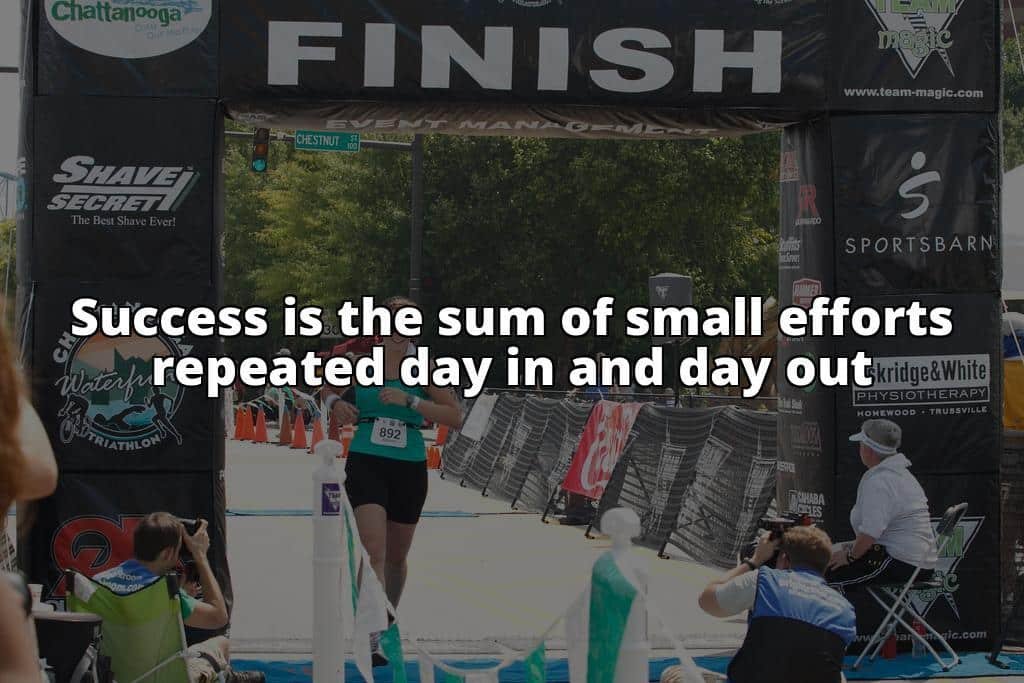Ultimate Couch to Marathon Guide

Marathon training is a challenging yet rewarding journey that requires dedication, commitment, and careful planning. Whether you’re a novice runner or a seasoned athlete, embarking on a marathon training plan is a significant undertaking that can transform your physical and mental fortitude. The process of preparing for a marathon involves gradually increasing your running distance, incorporating strength and cross-training, focusing on nutrition and hydration, and prioritizing rest and recovery. This comprehensive guide will walk you through every aspect of marathon training, providing valuable insights and actionable tips to help you conquer the 26.2-mile race.
Setting Your Marathon Goals
Before diving into a marathon training plan, it’s crucial to establish clear and realistic goals. Your goals should align with your current fitness level, time availability, and personal aspirations. Whether you aim to complete your first marathon, achieve a specific finishing time, or simply enjoy the experience, setting measurable and achievable goals will guide your training journey. By defining your objectives, you can tailor your training plan to meet your individual needs and track your progress effectively.
Setting S.M.A.R.T. Goals
When setting marathon goals, consider using the S.M.A.R.T. framework: Specific, Measurable, Achievable, Relevant, and Time-bound. For instance, a S.M.A.R.T. goal could be: I will finish my first marathon within 6 months, gradually increasing my weekly mileage and incorporating strength training to improve endurance and reduce the risk of injury.
“We suffer more often in imagination than in reality.”
~ Seneca
Customizing Your Training Plan to Fit Your Lifestyle
One of the key elements of a successful marathon training plan is its adaptability to your lifestyle. Balancing work, family, social commitments, and other responsibilities alongside rigorous training can be challenging. Therefore, customizing your training plan to fit your daily routine is essential for long-term adherence and success.
Time Management and Prioritization
Evaluate your daily schedule and identify time slots for running, cross-training, and recovery. Prioritize your training sessions by treating them as non-negotiable appointments. Additionally, consider seeking support from family members, friends, or colleagues to help you maintain consistency in your training schedule.
Building a Strong Foundation:
| Time Management | Support System | Mental Preparation |
| Evaluate your daily schedule and identify time slots for running, cross-training, and recovery. Prioritize your training sessions by treating them as non-negotiable appointments. | Consider seeking support from family members, friends, or colleagues to help you maintain consistency in your training schedule. | Embrace the incremental improvements and celebrate each milestone as you progress through the Couch to 5K program. |
Couch to 5K
For novice runners or individuals returning to running after a hiatus, the Couch to 5K (C25K) program serves as an excellent starting point. This structured program gradually eases participants into running, alternating between walking and running intervals over several weeks. The C25K approach effectively builds cardiovascular endurance and prepares the body for more advanced training phases.
Gradual Progression and Patience
The key to transitioning from a sedentary lifestyle to becoming a proficient runner lies in gradual progression and patience. Overexertion and attempting to progress too quickly can lead to burnout and injuries, hindering your marathon aspirations. Embrace the incremental improvements and celebrate each milestone as you progress through the Couch to 5K program.
Mental Preparation and Overcoming Psychological Barriers
Preparing for a marathon goes beyond physical training; it also requires mental fortitude and resilience. Many runners encounter psychological barriers such as self-doubt, anxiety, and fear of failure during their training journey. Overcoming these obstacles is crucial for maintaining motivation and focus.
“You have power over your mind not outside events.
Realize this, and you will find strength.”
~ Marcus Aurelius
Visualization and Positive Affirmations
Incorporate visualization techniques into your training routine to mentally rehearse crossing the marathon finish line. Visualizing success can boost confidence and alleviate pre-race jitters. Additionally, practice positive affirmations to reinforce your belief in your capabilities and stay mentally strong throughout the training process.
Choosing the Right Gear for Marathon Training
Selecting appropriate running gear is paramount for comfort, performance, and injury prevention during marathon training. From running shoes to moisture-wicking apparel and accessories, investing in high-quality gear tailored to your specific needs can enhance your overall training experience.
Importance of Proper Footwear
Running shoes are the cornerstone of your training gear. Visit a reputable running store to undergo a gait analysis and find the ideal shoes that provide adequate support, cushioning, and stability. Ill-fitting or worn-out shoes can contribute to discomfort and increase the risk of foot and leg injuries.
Structured Training Plans
Utilize structured training plans designed to bridge the gap between 5K and longer distances. These plans typically incorporate interval training, tempo runs, and long runs to improve endurance and speed. Gradually increasing your weekly mileage while incorporating rest days is essential for preventing overtraining and minimizing the risk of injury.
Intermediate Training: Progressing from 10K to Half Marathon
Once you’ve established a solid foundation through the Couch to 5K program, progressing to longer distances such as a 10K and eventually a half marathon becomes the next natural step in your marathon training journey.
Advanced Strategies for Marathon Preparation
As you transition from half marathon training to preparing for a full marathon, advanced strategies come into play, focusing on further increasing mileage, refining pacing strategies, and enhancing overall performance.
Long Runs and Simulated Race Conditions
Integrate long runs into your training regimen to accustom your body to the physical and mental demands of running for extended periods. Consider simulating race conditions during select long runs by testing different fueling strategies, hydration plans, and race pace simulations to fine-tune your approach for marathon day.
Cross-Training and Strength Training for Runners
Incorporating cross-training and strength training into your marathon preparation can improve muscular strength, flexibility, and overall athleticism, complementing your running performance and reducing the risk of overuse injuries.
Cross-Training Options
Explore low-impact cross-training activities such as swimming, cycling, or elliptical training to supplement your running routine. These activities provide cardiovascular benefits while minimizing the repetitive stress on your running muscles, promoting recovery and reducing the likelihood of overtraining injuries.

Nutrition and Hydration Tips for Long-Distance Running
Proper nutrition and hydration play a pivotal role in sustaining energy levels, optimizing performance, and expediting recovery during marathon training and on race day.
Balanced Nutrition
Adopt a well-rounded, nutrient-dense diet comprising complex carbohydrates, lean proteins, healthy fats, and an abundance of fruits and vegetables to fuel your training and aid in muscle repair. Prioritize pre- and post-run nutrition to replenish glycogen stores and facilitate recovery.

Injury Prevention: Dealing with Running Injuries
Injury prevention is a critical component of marathon training. Recognizing the signs of overtraining, addressing minor discomfort promptly, and seeking professional guidance are essential for mitigating the risk of debilitating injuries.
Listening to Your Body
Pay attention to subtle signals from your body, such as persistent aches or unusual fatigue, and modify your training intensity or seek medical evaluation if necessary. Ignoring warning signs can escalate minor issues into severe injuries, derailing your training progress.
The Importance of Rest and Recovery in Marathon Training
Amidst the rigors of marathon training, adequate rest and recovery are often undervalued. Prioritizing restorative practices is vital for allowing your body to adapt to training stimulus and minimize the likelihood of burnout and overtraining syndrome.
Sleep Quality and Quantity
Strive for consistent and adequate sleep to facilitate physical and mental recovery. Quality sleep supports muscle repair, hormone regulation, and cognitive function, contributing to improved training adaptations and overall well-being.
A study on “The Impact of Sleep Duration and Sleep Quality on Athletic Performance in College Athletes,” highlights the crucial role that both the quantity and quality of sleep play in optimizing athletic performance. According to the research conducted on Stanford University’s mens basketball team, it was found that extending sleep to 10 hours a night led to significant improvements in players’ sprint times and overall athletic performance. This study emphasizes the importance of adequate sleep for muscle repair, hormone regulation, cognitive function, and ultimately, enhanced training adaptations and well-being for athletes.
For more detailed insights into how sleep affects athletic performance, you can visit the Sleep Foundation’s coverage on the topic here: Sleep Foundation – Athletic Performance and Sleep.
Building Your Support System: Coaches, Groups, and Mentors
Surrounding yourself with a supportive network can significantly enhance your marathon training experience. Whether through professional coaching, running groups, or mentorship, leveraging a supportive community can provide invaluable guidance, motivation, and camaraderie.
Finding a Running Community
Engage with local running clubs, online forums, or social media groups to connect with like-minded individuals who share your passion for running. Building meaningful relationships within the running community can foster accountability, encouragement, and shared experiences throughout your training journey.

Tips for Race Day Success
Race day presents a culmination of all your training efforts and preparations. Implementing effective race day strategies can optimize your performance and ensure a memorable and fulfilling marathon experience.
- Pretend You’re Sleeping Beauty: Aim for a solid 8 hours of sleep. If you can’t manage that, lying in bed wide awake contemplating your life choices works too.
- Breakfast of Champions, or Whatever Doesn’t Make You Barf: Your pre-race meal should be something you’ve bravely tested before. Remember, surprises are for birthdays, not race days.
- Beat the Sun: Arrive so early you could technically qualify as part of the setup crew. This way, you get dibs on the best porta-potty.
- Dress for a Fashion Faux Pas: Wear the most battle-tested, least fashionable gear you own. The goal is to finish the race, not make it onto a fashion blog.
- Dream Big, Run Slow: Set goals as if you were a Greek god, then run like you’re savoring a fine wineslowly, with a hint of regret.
- Warm-Up Like You Know What You’re Doing: A casual jog and some flailing that resembles stretching should trick everyone into thinking you’re a pro.
- Hydrate or Diedrate: Drink like theres a drought forecasted, but don’t overdo it. You don’t want to be creating a personal water feature mid-race.
- Pace Yourself Like a Tortoise on Sedatives: Its a marathon, not a sprint. If you start overtaking everyone, youre probably going the wrong way.
- Talk to Yourself: Use positive self-talk or simply debate the best kind of pizza. Mental distraction is key to forgetting you voluntarily signed up for this.
- Stop and Smell the Roses: Or the sweat, whichever. Enjoy the scenery, high-five volunteers, and remember, youre doing this for the free banana at the finish line.
Race Day Logistics and Planning
Familiarize yourself with the race course, logistics, and available amenities to alleviate pre-race anxiety and minimize uncertainties. Arrive early, stay hydrated, and adhere to your pacing plan to execute a successful race day strategy.
Post-Marathon Recovery: Strategies and Time
Upon completing a marathon, prioritizing post-race recovery is paramount for facilitating physical and emotional recuperation and reducing the likelihood of post-race blues and burnout.
Active Recovery and Reflection
Engage in light, low-impact activities such as walking, swimming, or gentle yoga to promote circulation and aid in muscle recovery. Reflect on your marathon experience, celebrate your accomplishment, and set new goals to maintain your momentum and passion for running.
Planning Your Next Steps: Beyond the Marathon
Upon conquering the marathon, your journey as a runner continues, presenting opportunities for new challenges, personal growth, and ongoing fulfillment.
Setting New Milestones
Explore diverse running experiences such as trail running, relay races, or destination races to broaden your horizons and sustain your enthusiasm for running. Setting new milestones and embracing fresh pursuits can reignite your passion for running and perpetuate your commitment to an active lifestyle.
Conclusion
Embarking on a marathon training plan is an enriching endeavor that encompasses physical training, mental fortitude, and holistic wellness. By customizing your training plan, cultivating mental resilience, prioritizing proper gear and nutrition, and embracing a supportive community, you can conquer the marathon and embark on a lifelong journey of health, achievement, and personal growth. Stay committed, stay resilient, and let your marathon training journey be a testament to your unwavering spirit and determination.






